Politics
Tinubu appoints Tegbe as DG China-Nigeria strategic partnership
Published
7 months agoon
By
Ekwutos BlogPresident Bola Tinubu has appointed Joseph Olasunkanmi Tegbe as Director-General and Global Liaison for the Nigeria-China strategic partnership.
The development followed a commitment by the two countries to establish hospital alliances and collaborate on medical research.
This was announced in a release by Bayo Onanuga, Special Adviser to the President
(.Information and Strategy), on Sunday.
According to the statement, Tegbe, a 1988 first-class graduate in civil engineering from Obafemi Awolowo University, will report directly to the President.
He is also a fellow of the Institute of Chartered Accountants of Nigeria (FCA) and a fellow of the Chartered Institute of Taxation of Nigeria.
Onanuga said Tegbe will immediately submit a strategic action plan to enable Nigeria to benefit from the agreements between the two countries in Beijing.
“As the czar of the strategic partnership, he will lead day-to-day operations, engage continuously with the Chinese counterparts, and ensure that all deliverables are met and synchronised with national development goals.
“In the strategic plan, he will outline the specific deliverables, timelines, and key performance indicators for each area of cooperation. This will include priority projects, projected investments and expected socioeconomic outcomes,” part of the statement read.
Recall that at the 2024 Forum on China-Africa Cooperation (FOCAC), President Xi Jinping pledged 360 billion yuan, or about $51 billion, in new financing to African nations in the next three years.
During his official visit before the FOCAC, President Tinubu also obtained a commitment from President Xi to support Nigeria’s economic diversification plans, infrastructure development, technology transfer, and job creation.
You may like
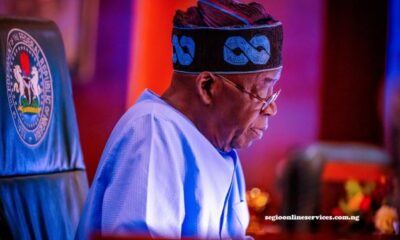

FG DISBURSES ₦50BN TO SETTLE ASUU AND NASU FOR EARNED ALLOWANCES
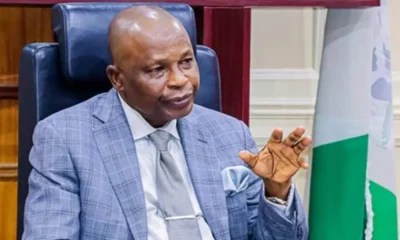

AGF assures probe of ex-NNPCL boss Mele Kyari over corruption allegations
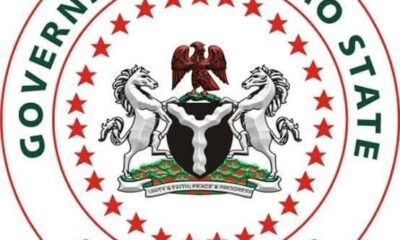

Uzodimma okays clampdown on commercial vehicles drivers operating with tinted glasses


UPDATED: Oborevwori, Okowa, others dump PDP for APC
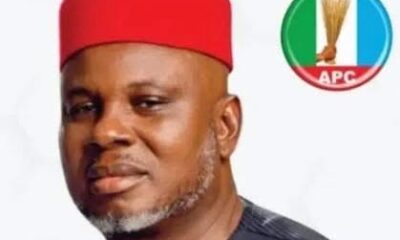

Fact-checker has falsified Ukachukwu’s claim to be the highest employer of labour at a point in Anambra.
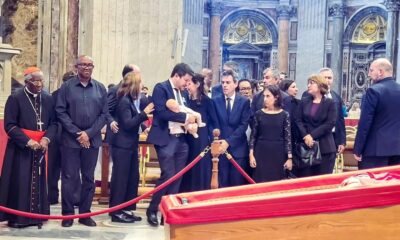

Peter Obi Pays Tribute: POPE FRANCIS EULOGY: Leaders Urged to Emulate Pontiff’s Values
Politics
UPDATED: Oborevwori, Okowa, others dump PDP for APC
Published
12 hours agoon
April 23, 2025By
Ekwutos Blog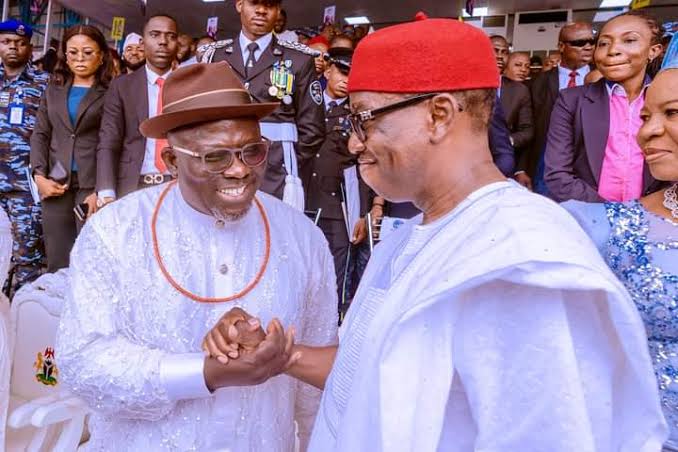
Delta State Governor, Sheriff Oborevwori, the immediate past governor, Ifeanyi Okowa, and all members of the Peoples Democratic Party in Delta State have defected to the All Progressives Congress.
The announcement was made on Wednesday in Asaba, the Delta State capital, by Senator James Manager, shortly after a meeting that lasted over six hours at Government House, Asaba.
Manager stated, “All PDP members in the state, including the governor, former Governor Okowa, the Speaker, the state party chairman, all the local government chairmen and others, have agreed to move to the APC.
“We cannot continue to be in a sinking boat,” he said.
The Delta State Commissioner for Information, Mr Aniagwu Charles, officially confirmed the governor’s defection and the collective decision of Delta PDP leaders and stakeholders to join the APC.
“
There is a need for us to adjust our drinking patterns. And in adjusting that drinking pattern, we needed to make a decision that would further help to cement the development in our state, to build the court of law that has existed in our state, to further advance the cause of security and the welfare of our people, and, to a large extent, ensure that development in Delta is not truncated,” Aniagwu stated.
He continued, “In taking that decision, we concluded that leaving the PDP was very necessary for us to be able to collaborate and build a state that every Deltan will be proud of. We believe that what is happening, and the state of the PDP, is akin to that palm wine whose taste has changed — and there was a need for us to change the drinking party.”
Charles added that the decision was unanimously made by party leaders and stakeholders, hinting at a formal public declaration soon.
“By the grace of God, on Monday next week, we will be able to make a very big statement confirming that we are moving into the APC,” he said.
The move marks a significant turning point in Delta State politics, signalling a broader political recalibration that could reshape party dominance in the South-South region.
Politics
2027: Don’t fall for Tinubu’s tricks, Timi Frank warns Northern, Southern leaders
Published
14 hours agoon
April 23, 2025By
Ekwutos Blog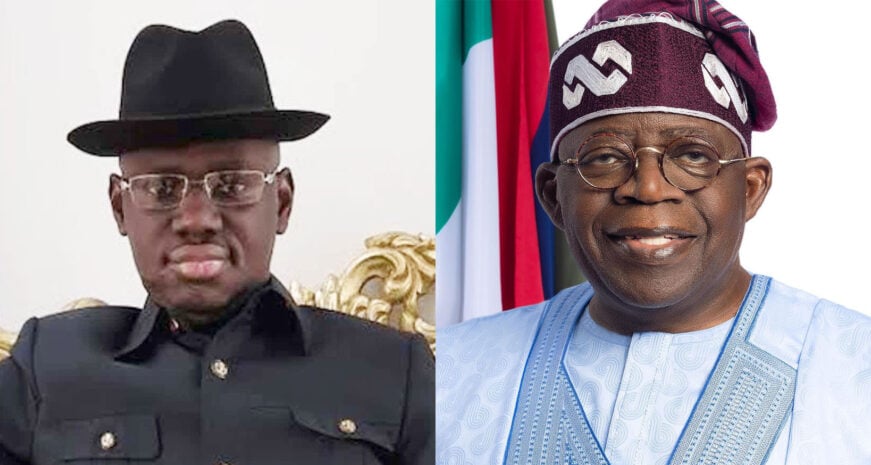
A former Deputy National Publicity Secretary of the All Progressives Congress (APC), Comrade Timi Frank, has warned northern and southern leaders against being fooled by President Bola Tinubu’s tricks to grab power in 2027.
Frank made the call in a statement issued Wednesday.
He said while Tinubu is on the one hand blackmailing southerners, especially opposition governors on the platform of the PDP, Labour Party and All Progressives Grand Alliance by playing the ethnic card to gain support, he is on the other hand threatening to deal with them if they fail to support him by declaring a state of emergency in their states.
Frank added that 2027 should not be about North or South but who would fix the myriads of challenges confronting the country.
He said: “He has increased the intensity now by blackmailing, intimidating and putting at least five PDP Governors from the South under duress to defect along with their Members in the National Assembly to the APC.
“To Tinubu, the 2027 election is about him versus the North and that is why he is trying desperately to enlist the support of the South through manipulation and subterfuge. He has forgotten so soon that the North helped him to get to power in 2023.
“Nigerians are in need of a President who will help Nigeria become better, not ‘Northern candidate or Southern candidate’ or ‘Northern President or Southern President’.
“The country is overcharged already with divisions along ethnic lines. We therefore can’t afford to have a President who is setting one region against another for the sake of his own personal ambition.
“For me, Timi Frank, as a Southerner, I don’t believe in tribalistic and a divisive president. I believe in a leader that will come and unite rather than divide Nigeria.
“I advise every Northerner still supporting Tinubu to have a rethink. They should know that the North that apparently ‘assisted’ Tinubu to gain power in 2023 are suffering the most today.
“It is a fact that the north has been grossly sidelined in appointments and other infrastructure development programmes by Tinubu who has prioritised his personal and tribal life interests over the everything else.”
“This is why the North should wake up. They should know this route Tinubu is going in terms of 2027 politics, is not the best for Nigeria. They should rise and speak with one voice in 2027.
“I want the Northern leaders to know that should Tinubu find his way back to power in 2027, the North will suffer untold neglect as Tinubu and the APC don’t have their genuine interest at heart.
“As we speak, at least five opposition governors are set to defect to APC not because they like Tinubu but due to intense political pressure, intimidation and blackmail, while those who will remain have been made to sign undertakings to deliver their states to Tinubu otherwise they will be made to lose their second terms elections.
Politics
150 PDP, LP members defect to APC in Enugu, back Utazi’s suspension
Published
17 hours agoon
April 23, 2025By
Ekwutos Blog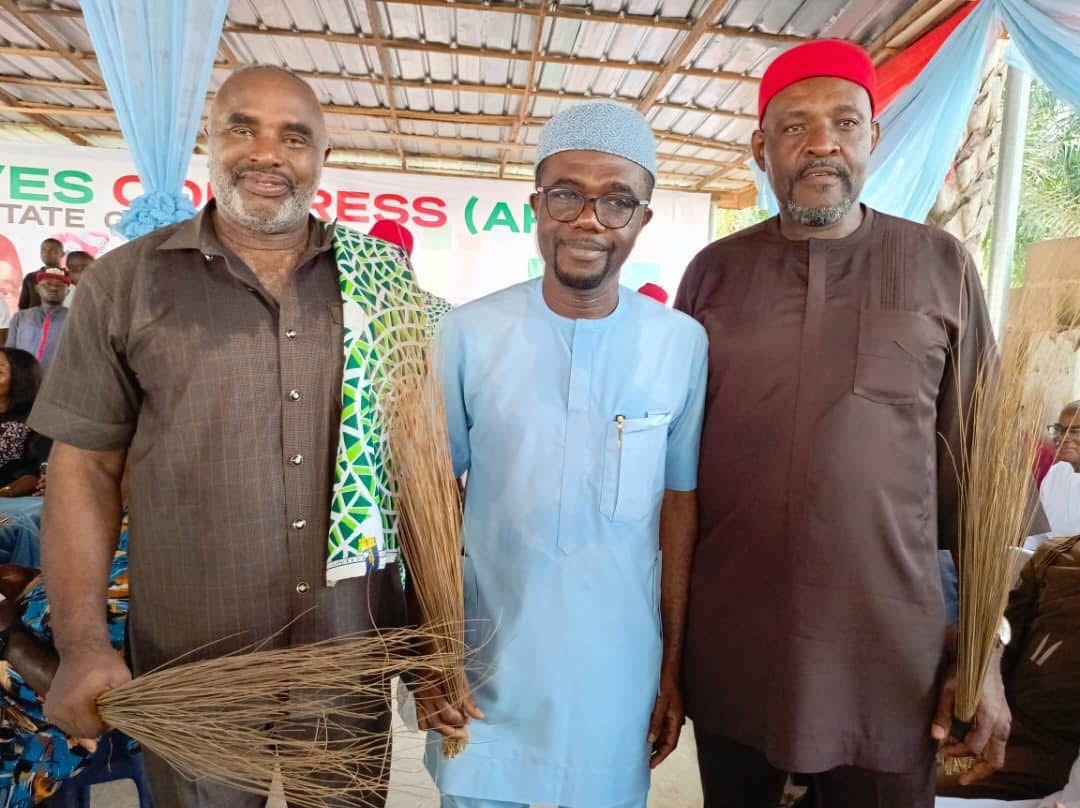
At least 150 members of the Peoples Democratic Party (PDP) and Labour Party (LP) have defected to the All Progressives Congress (APC) in Enugu State, strengthening the opposition party.
Prominent defectors include Peter Okonkwo, former Commissioner for Local Government; Nonso Ochi, LP’s 2023 Awgu North candidate; Onyeka Chukwuedo, PDP Awgu South aspirant; Chief John Edeh, PDP Nkanu West aspirant; Chief Tony Chigbo, former Uzo-Uwani LGA Chairman; and Emeka Abba, LP chieftain from Udenu.
The defectors were welcomed during an expanded stakeholders’ meeting at the APC’s state secretariat on Saturday. A communiqué stated, “The leaders note with excitement that our party has witnessed significant growth with the influx of new members in the last year. The number of new decampees that we received today is evidence of such an influx across the local government areas and wards.”
Stakeholders endorsed the indefinite suspension of Senator Chuka Utazi by his Nkpologu ward and Uzo-Uwani LGA for alleged anti-party activities, urging the State Executive Committee to ratify it
They accused the Peter Mbah-led government of failing to address killings in Uzo-Uwani and Isi-Uzo, stating, “The party declared that the Peter Mbah-led government has failed in its primary duty of protecting lives and property… the huge population of the citizens in the rural areas are left at the mercy of killer herdsmen and other criminals.”
The APC praised Minister Uche Nnaji for securing federal projects, jobs, and welfare packages, including Easter rice and 2024 farming fertilisers. They dismissed former chairman Ben Nwoye’s resignation, noting: “One cannot be resigning from a party that he or she is no longer a member of since 2023.”
The meeting reaffirmed loyalty to President Bola Tinubu’s Renewed Hope agenda, urging Igbo support.

FG DISBURSES ₦50BN TO SETTLE ASUU AND NASU FOR EARNED ALLOWANCES

AGF assures probe of ex-NNPCL boss Mele Kyari over corruption allegations

Uzodimma okays clampdown on commercial vehicles drivers operating with tinted glasses
Trending

 Trending6 months ago
Trending6 months agoNYA demands release of ‘abducted’ Imo chairman, preaches good governance
- Business6 months ago
US court acquits Air Peace boss, slams Mayfield $4000 fine

 Politics6 months ago
Politics6 months agoMexico’s new president causes concern just weeks before the US elections
- Entertainment6 months ago
Bobrisky transferred from Immigration to FCID, spends night behind bars
- Entertainment6 months ago
Bobrisky falls ill in police custody, rushed to hospital

 Politics6 months ago
Politics6 months agoRussia bans imports of agro-products from Kazakhstan after refusal to join BRICS

 Politics6 months ago
Politics6 months agoPutin invites 20 world leaders
- Politics1 year ago
Nigerian Senate passes Bill seeking the establishment of the South East Development Commission.

